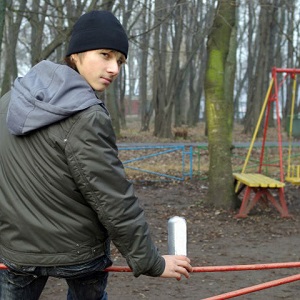 Alcoholism, known more clinically as “alcohol dependence syndrome,” is characterized by craving, loss of control, and physical dependence. People with alcohol addiction can have negative impacts on those with whom they associate. Research has shown that children of people with alcohol addiction can develop some personality traits that may impact their lives as adults.
Alcoholism, known more clinically as “alcohol dependence syndrome,” is characterized by craving, loss of control, and physical dependence. People with alcohol addiction can have negative impacts on those with whom they associate. Research has shown that children of people with alcohol addiction can develop some personality traits that may impact their lives as adults.
Here are 12 common characteristics of adult children of people with alcohol addiction as described by Woititz (1988):
- They guess what normal behavior is.
- They have difficulty following a project through from beginning to end.
- They lie when it would be just as easy to tell the truth.
- They judge themselves without mercy.
- They have difficulty having fun.
- They have difficulty with intimate relationships.
- They overreact to changes over which they have no control.
- They constantly seek approval and affirmation.
- They usually feel that they are different from other people.
- They are super responsible or super irresponsible.
- They are extremely loyal, even when loyalty is undeserved.
- They are impulsive.
Research shows that adult children of people with alcohol addiction are at risk of having their own alcohol addiction, abusing drugs, and attempting or committing suicide. Also, they may develop patterns of compulsive behavior such as overeating and other eating issues. And adult children of people with alcohol addiction often marry people with the same addiction.
If you are an adult child of a parent who is addicted to alcohol, remember that you are not alone. Millions of people have grown up in families with alcohol-related problems. Because of the environment they grew up in, they had to develop certain skills in order to survive:
- Resilience
- Ability to take charge
- Problem solving
- Loyalty
- Hard worker
- Ability to respond well in crisis
Remember: You are not responsible for the alcohol abuse or violence in your family. If you are feeling overwhelmed, have strong feelings of depression and anxiety, or if you are consuming excessive amounts of alcohol or other drugs, get help. Seek support of family and friends, find a recovery group, or speak to a mental health professional.

The preceding article was solely written by the author named above. Any views and opinions expressed are not necessarily shared by GoodTherapy.org. Questions or concerns about the preceding article can be directed to the author or posted as a comment below.

 Family History of Alcohol Use Increases Risk of Depression and Anxiety
Family History of Alcohol Use Increases Risk of Depression and Anxiety Enabling 101: How Love Becomes Fear and Help Becomes Control
Enabling 101: How Love Becomes Fear and Help Becomes Control Pleasing Others to Escape the Bad Person Feeling
Pleasing Others to Escape the Bad Person Feeling

Please fill out all required fields to submit your message.
Invalid Email Address.
Please confirm that you are human.
Leave a Comment
By commenting you acknowledge acceptance of GoodTherapy.org's Terms and Conditions of Use.